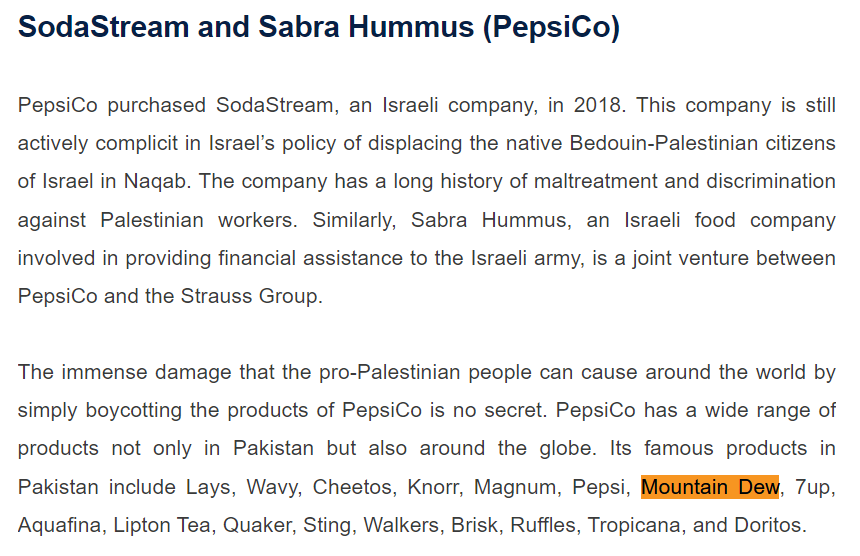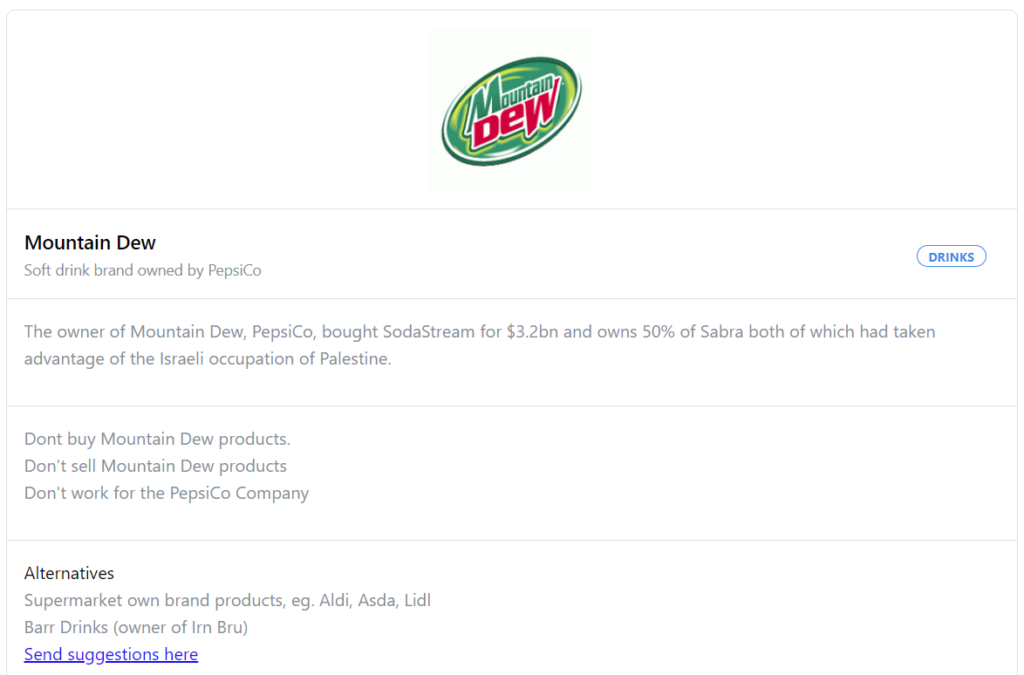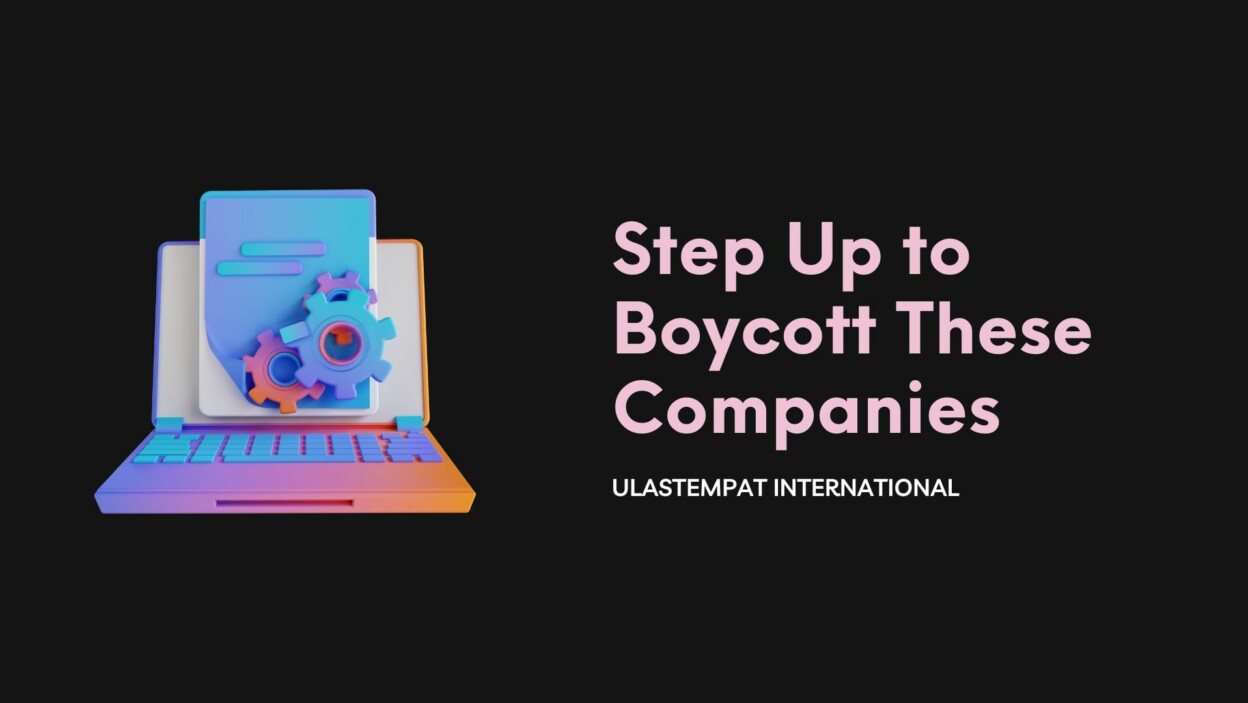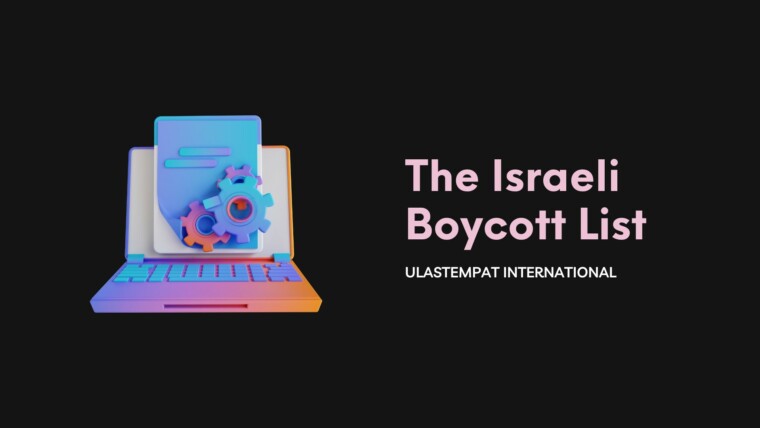The association between Mountain Dew, an iconic soft drink brand owned by PepsiCo, and its ties to companies embroiled in Israel’s contentious policies has ignited a firestorm of criticism.
PepsiCo’s acquisitions, notably SodaStream and its joint venture in Sabra Hummus, have come under intense scrutiny due to their involvement in activities deeply entangled in the Israeli occupation of Palestine. This partnership raises profound ethical concerns about corporate responsibility, human rights, and the repercussions of such alliances on global markets.

Also See: New Balance’s Support for Israel: Examining the Details
Unveiling PepsiCo’s Complicity in Israeli Controversies
PepsiCo’s purchase of SodaStream in 2018 has thrust the company into the spotlight for its role in perpetuating Israel’s displacement of native Bedouin-Palestinian citizens in Naqab. The distressing reports of maltreatment and discrimination against Palestinian workers within SodaStream’s operations highlight the ethical dilemmas posed by corporations involved in contentious geopolitical issues. Additionally, the joint venture of PepsiCo with the Strauss Group in Sabra Hummus, accused of aiding the Israeli army, adds further complexity to the ethical debate surrounding the company’s associations.
The Global Impact
The implications of supporting PepsiCo’s products extend far beyond borders, as the potential impact of a global boycott looms large. PepsiCo’s expansive product range, including household names like Lays, Cheetos, Pepsi, Mountain Dew, and others, has a significant presence not only in Pakistan but across the world. However, the company’s connections to entities complicit in the Israeli occupation of Palestine stand in stark contrast to ethical business practices and human rights considerations.
The ownership of Mountain Dew by PepsiCo, along with its involvement in SodaStream and Sabra Hummus, reflects a pattern of profiting from situations entangled in controversy and human rights violations. Calls to boycott Mountain Dew products, refrain from selling them, and avoid employment with PepsiCo underscore the need to hold corporations accountable for their affiliations and actions.
In seeking alternatives, consumers are encouraged to consider supermarket-owned brands like Aldi, Asda, or Lidl, along with Barr Drinks, the owner of Irn Bru, as ethically sound alternatives. This call for conscientious consumer behavior aims to leverage consumer power in favor of ethical and morally sound choices while fostering accountability within the corporate landscape.

Explore More: Is Fanta Supportive of Israel? Explained
The controversy surrounding Mountain Dew and PepsiCo’s affiliations with SodaStream and Sabra Hummus underscores the intricate balance between corporate interests and ethical responsibility.
The allegations of complicity in the Israeli occupation of Palestine raise fundamental questions about the ethical compass guiding corporate decisions and the societal impact of such partnerships. The scrutiny directed at PepsiCo’s involvement serves as a stark reminder of the moral obligations corporations bear in their global operations.



Does Red Bull Support Israel? Decoding the Unraveled Connection
Companies That Support Israel: A List to Avoid
Fast Food Chains Aligned with Israel Support
Boycott List: Fashion Companies Supporting Israel You Should Be Aware Of
Does These Firearms Support Israel? Exploring the Unraveled Connection
Does These Tech Brands Support Israel? Decoding the Unraveled Connection
Does These Filmography Support Israel? Understanding the Intricate Ties
Does These Online Business Support Israel? Exploring the Unraveled Connection